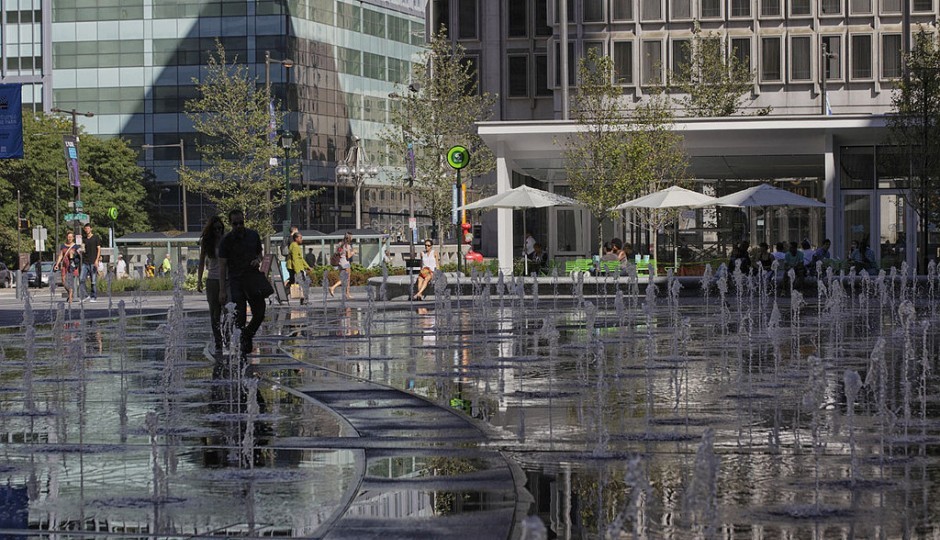Paul Levy Wants a Truce Between Center City and Neighborhoods

Center City has been treated to a lot of perks, including Dilworth Park.
Mayoral elections in Philadelphia have a tendency to become battles between neighborhood interests and Center City ones, and there are plenty of indicators that 2015 will not be much different. Mayoral candidates State Senator Anthony Williams and attorney Kenneth Trujillo, made the theme of a divided Philly–with Center City on one side, struggling rowhome communities on the other–central elements of their campaign announcements.
It’s a potent political message, as Mayor Bill de Blasio’s campaign showed in New York last year. And while the tale of two cities narrative is built partly on resentment, it’s also grounded in an unhappy reality: despite Center City’s growth, poverty and stagnation still rule in many Philadelphia neighborhoods.
So, how to talk about Center City’s needs and priorities in a campaign where, thus far at least, neighborhood concerns appear paramount? Paul Levy, executive director of the Center City District, took a stab at it in an interesting letter last month that sought to create “a distinction between residential Center City and business Center City.”
Levy acknowledges that the 180,000 Philadelphians who live in greater Center City are more highly educated than the city as a whole (Levy doesn’t go there, but Center City is also, obviously, a lot wealthier and whiter than most of the city). But business Center City is a different story, Levy contends.
“This is not trickle-down economics. Downtown is transit accessible. Four times as many Center City jobs (42%) are held by Philadelphia residents from non-Center City neighborhoods than are held by [Center City] residents (10%),” Levy writes. “Diversity is a hallmark of downtown employment: while 40% of Center City jobs require a BA or more, 30% require just an associate’s degree; another 30% are available to workers with just high school diplomas.”
Levy’s point? Policies that are good for Center City are good for Philadelphia. Policies that create jobs downtown create economic opportunity for residents of rowhome neighborhoods.
While there are any number of new programs or policies that would work to Center City’s advantage, Levy’s central focus is tax reform–basically shifting the burden off of wage and business taxes and onto the property tax–which he considers a sine qua non for accelerating job creation.
Tax reform is a subject that consumed a lot of oxygen in past mayoral elections, but is struggling for air so far this cycle. Look for a bigger push on the tax front from business interests soon. Levy’s letter represents a preview of the argument I think we can expect. “By all means,” he writes, “challenge disparities, demand quality education and services for neighborhoods. But only by embracing competitiveness, can Philadelphia grow the jobs that make fulfilling such promises possible.”